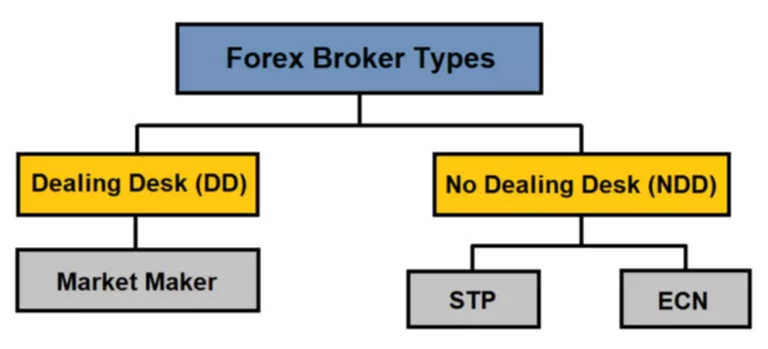Content
Full-service brokers can create an intricate investment portfolio with their expertise, something discount brokers typically can’t provide. Full-service firms have large research departments with analysts that provide proprietary detailed reports and recommendations for clients. Investing in the stock market can be a rewarding experience, but it is not without its challenges. The stock market is known for its unpredictable nature, and fluctuations can occur at any time, leaving investors feeling anxious and unsure about the future. However, it Decentralized finance is important to maintain a long-term perspective and stay disciplined in the face of market volatility. They can help investors navigate through the ups and downs of the market and make informed decisions.
What are the types of stock brokers?
Much of the work they do to execute and fill your trades happens behind the scenes. Brokers must be licensed, and there are different types of brokers for different types of markets. A stop-loss order is an order to sell a security at a specific price to limit losses. Traders should use stop-loss orders to protect their investments from significant losses. For example, if a trader bought a stock at $50, they could set a https://www.xcritical.com/ stop-loss order at $45.
What is the role of a stock broker in the stock market?
Hence, you will have to see how long the brokerage firm has been around for, their track record, what their past clients say about them, and what type of results they have achieved. Looking at these factors is a great place to find the best brokerage brokerage firm services firm. Here’s a quick comparison of the difference between discount brokers and full service brokers. With millions of trading accounts opened, the value of having a broker has never been more apparent. But, with so many alternatives available, how can you choose the best option?

Brokerage Firms VS. Wealth Management Firms
The primary role of a broker is to execute trading orders on behalf of clients. Clients are able to place orders to buy or sell stocks, derivatives, currencies etc through the broker who will then execute the trades on the exchange. Brokers undertake activities like order placement, order matching, settlement and clearing of trades. Without a stock broker, it would be extremely difficult for an individual investor to directly access the stock market and seamlessly execute trades. It is possible to operate independently as a Stockbroker, but most Brokers work for investment banks or brokerage firms, sometimes called “brokerage companies” or just “brokerages”. Using a full-service stock broker has several different perks that might improve your investing experience.
Super funds sack Westpac boss. Who’s next? CEO’s beware!
It offers insights into market trends, industry analysis, and the company’s financial health. Market research allows investors to make informed decisions and avoid impulsive investments that could result in significant losses. An in-depth understanding of the market and its forces is necessary for making smarter investments. The key difference between discount and direct access brokers is the execution method.
Jessie Moore has been writing professionally for nearly two decades; for the past seven years, she’s focused on writing, ghostwriting, and editing in the finance space. She is a Today Show and Publisher’s Weekly-featured author who has written or ghostwritten 10+ books on a wide variety of topics, ranging from day trading to unicorns to plant care. Order execution matters because filling an order at a higher or lower price will affect how much you pay to initiate a trade and how much you receive on a sale. Remember, though, in this age of high liquidity and active participation, we’re talking about a difference of pennies—or even fractions of pennies. If there is an online broker review you think we missed that is not included above please let us know. Please read the offering circular and related risks at invest.modemobile.com.
“They take pride in providing great customer services and support,” says one reader. Stockbroker salaries will vary based on the institution, clientele, and level of broker experience. A leasing broker is a specialist who is similar to a credit broker but in the field of leasing equipment.
- Technical analysis, on the other hand, involves analyzing the trading volumes and stock prices of a company to identify trends and predict future price movements.
- The best way to start your search for a brokerage firm is to ask your colleagues, family members, and friends for suggestions.
- Answers i.e. transaction costs will vary based on the unpredictable nature of market.
- As a result of years of relationship building, our private clients have access to investment opportunities not readily available at our larger competitors.
- Online brokerages are companies that enable the purchase and sale of securities using trading platforms accessible online.
They can give you suggestions such as establishing an irrevocable living trust, a family limited partnership or investing in a business where your partner and/or kids are partial owners. Order a free copy of our book, The Art of Protecting Ultra-High Net Worth Portfolios and Estates – Strategies for Families Worth $25 Million To $500 Million and find out more about estate planning and its importance. Online brokerages are companies that enable the purchase and sale of securities using trading platforms accessible online. They provide self-directed trading services, allowing investors to independently conduct transactions and oversee their investment portfolios. Stockbrokers are licensed professionals who manage client investments and administer financial advice to clients, and they are required to pass the Series 7, Series 63, and Series 65 exams to attain licensing. Brokers working at financial firms also need to be registered with the Financial Industry Regulatory Authority (FINRA).

A diversified portfolio is a collection of different types of investments that are spread out across various industries and sectors. The idea behind diversification is to reduce the overall risk of the portfolio by not having all your eggs in one basket. When it comes to selecting and managing a diversified portfolio, there are several key factors to keep in mind. In summary, developing a trading plan with your broker is a crucial step in becoming a successful stock trader.
Brokers must report how orders are filled and at what prices compared to the publicly available bid and ask spread at the time. The SEC also mandates that brokers must disclose if their orders are not routed for the best execution. Regulators require that brokers seek the best deals for their clients, which is why brokers will evaluate the best venue to execute a trade. However, my biggest concern here is which type of broker to choose for my trading activities. Traditionally and for quite a few decades full-service brokers have been ruling the market and were most preferred. A trailing stop order is an order to sell a security if it declines by a specific percentage or dollar amount.
Teams of analysts at full-service brokers usually offer comprehensive reports and insights on economic indicators, specific equities, and market movements. You may remain ahead of market developments and make informed judgments with the aid of our study. It’s important to know the difference between advisor-based, full-service brokers, and more do-it-yourself discount brokers when choosing an investment account. Each of these types of brokers has different advantages, but choosing which one is best should come down to the particular needs of the investor.
This allows investors to directly place trades themselves rather than relying on a broker. The key advantages of a direct access broker are greater trade execution speed and lower trading fees compared to full service and discount brokers. The one thing that sort of scares me about the difference between full service and discount brokers is that a pretty good chunk of discount brokerage firm clients are not that educated about investing. They look at a $20 commission (discount broker) and a $50 commission (full service broker) and they decide they can’t afford to invest with a full service broker. Instead they plow their life savings into some wonder stock they heard about from a friend (hey, it’s only a $20 commission, why not?) and lose a few hundred or thousand bucks when the investment goes south. Not that a broker is going to pick winners 100% of the time but at least the broker can guide or mentor a beginning investor until they learn enough to know what to look for and what not to look for in a stock.
I look at the $30 difference in what the two types of brokerage firms charge as the rebate for education and doing my own research. If you’re not going to educate yourself or do your own research, you don’t deserve the rebate. Full-service brokers are wealth managers who take into account every facet of your financial life, not just the stock market. One of the advantages of working with a full-service stock broker is that they may combine investment management with other financial services, such insurance, estate planning, and tax preparation. This all-encompassing strategy guarantees that your wealth is managed thoroughly, taking care of your short- and long-term financial requirements. Full service brokerage firms can provide other services such as tax or estate planning.
Irrespective of the type, brokers undertake responsibilities like market analysis, suitability checks, transaction settlement and maintaining custody of client funds and holdings. On the other hand, wealth management firms provide you a range of services covered by a single management fee. This entails tax planning, estate planning, risk management, financial planning, retirement planning, and much more. These firms work solely with wealthy individuals and families, which makes them experts in handling high-value assets. Selecting and managing a diversified portfolio is a critical step in successful stock trading.
